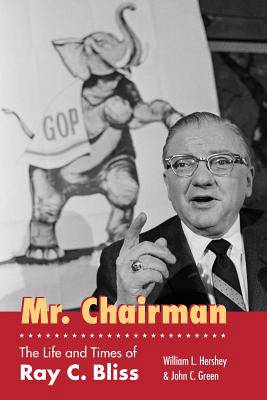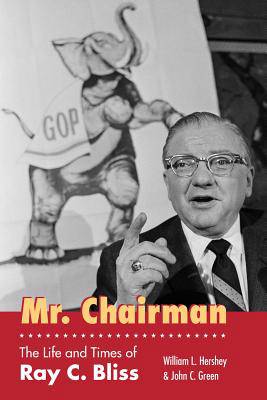
- Retrait gratuit dans votre magasin Club
- 7.000.000 titres dans notre catalogue
- Payer en toute sécurité
- Toujours un magasin près de chez vous
- Retrait gratuit dans votre magasin Club
- 7.000.0000 titres dans notre catalogue
- Payer en toute sécurité
- Toujours un magasin près de chez vous
Description
Ray Bliss was a masterful behind-the-scenes force in the Republican Party for more than three decades at the local, state, and national levels. Recognized as a master of the "nuts and bolts" of practical politics, Bliss was among the first to use polling and television in campaigns. When Bliss took over as national chairman in 1965, the GOP was on life support after Barry Goldwater's landslide defeat in the 1964 presidential election. Bliss rebuilt the party through hard work, innovation, a keen eye for detail, and uncanny political instincts. His shrewd ability to unite liberal, moderate, and conservative Republicans helped put Richard M. Nixon in the White House in 1968.
Republicans today face many of the same challenges Bliss faced nearly half a century ago as they struggle to present a united front on thorny issues such as health care and taxes, while accommodating diverse viewpoints. Bliss was critical of candidate-centered politics, more prevalent now than in his time. President Donald J. Trump succeeded with this approach and Republicans today could learn from Bliss's ability to uphold the party's interest when working with independent-minded and unpredictable officeholders such as Nixon and Ohio Governor James A. Rhodes.
Spécifications
Parties prenantes
- Auteur(s) :
- Editeur:
Contenu
- Nombre de pages :
- 224
- Langue:
- Anglais
- Collection :
Caractéristiques
- EAN:
- 9781629220413
- Date de parution :
- 09-11-17
- Format:
- Livre relié
- Format numérique:
- Genaaid
- Dimensions :
- 157 mm x 231 mm
- Poids :
- 816 g

Les avis
Nous publions uniquement les avis qui respectent les conditions requises. Consultez nos conditions pour les avis.






